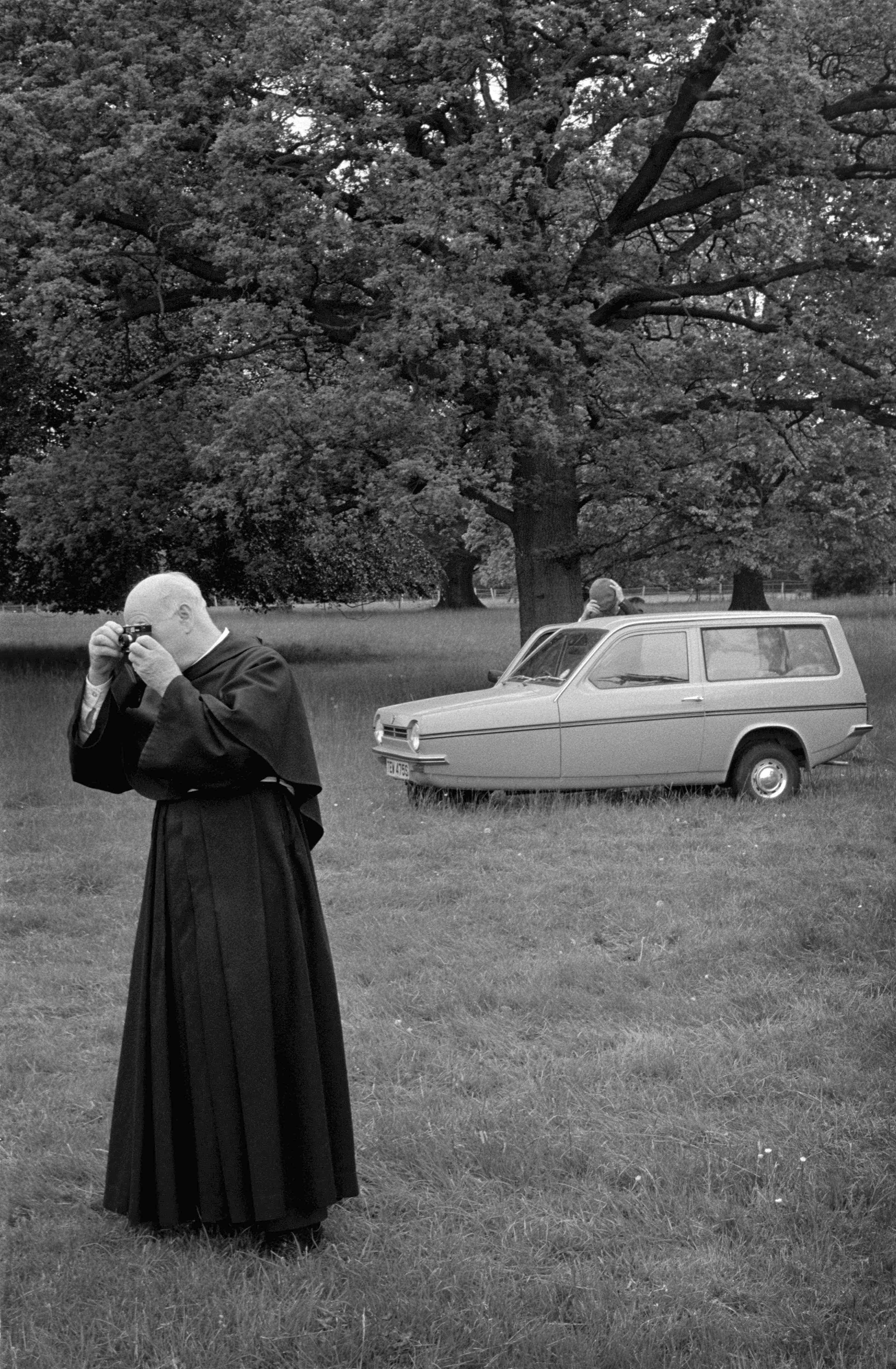The untold stories of Britain’s Polish community
- Text by Jacob Charles Wilson
- Photography by Czesław Siegieda

For the first few years of his life, Czesław Siegieda slept under the curved metal roof of a Nissen hut, on an RAF airfield turned displaced persons camp in Leicestershire. His parents, along with 250,000 other Poles, had moved to Britain in the years following the Second World War. They were members of a generation who had seen their country ravaged by war and Soviet occupation.
Over time they formed small communities, all the while believing they were only ‘temporary guests’ in Britain. At the age of 13, Siegieda took up photography. Later, inspired by the storytelling of W. Eugene Smith, André Kertész, and Josef Koudelka, his childhood hobby became a unique work of documenting the overlooked day-to-day aspects of his parents’ generation.
“They grouped together as communities and kept their familiar traditions going,” he remembers. “They formed Polish Saturday morning schools for their children so that they could teach them the Polish language, customs, traditions, that little bit of Polish history., but more importantly, their religion – prayers, catechism and so on – so that they remained within the Roman Catholic faith.”
Speaking English at school and Polish at home, Siegieda moved seamlessly between lives. “When I was a teenager a lot of people asked whether I was Polish or English, and I honestly couldn’t make up my mind. It was such a confusing question. For me, it was quite normal to switch from one to another. I never saw myself as an outsider.”

Fawley Court, Oxfordshire, England

Tadeusz, Józef and Helena, Loughborough, England
He puts his inquisitiveness down to his informal role as a translator for his widowed mother: “I realised that gave me an ability to be sensitive around people, to observe them and to understand them.”
“When my father died I realised that they’d been through a lot – and they were fairly tough people. However, I was aware that everything I was experiencing and seeing was coming to an end when these people died, which is why I tried to take as many photographs when I could.”
The story of the first generation of Poles to live in the UK is little heard, much less seen. Siegieda explains how the community tended to look inwards, in part because of the racist prejudice they faced, but also because they saw themselves as guests in a foreign country, even as their children came to feel British and as the prospect of returning to an independent Poland diminished.
“They were biding their time without really knowing if it would come around,” he adds, finally. “When the Iron Curtain came down I didn’t really detect a sense of relief, I think they were so used to being in this country – their lives were formed in this country, their homes were here now – that they didn’t express any great wish to go back to Poland.”

Annual Corpus Christi Event, Laxton Hall, Northamptonshire

Laxton Hall, Northamptonshire

Józef waiting to go to church for his First Holy Communion, Loughborough, England

Laxton Hall, Northamptonshire

Pitsford Hall, Northamptonshire

St Briavels Polish Scout House, Gloucestershire, England

Pitsford Hall, Northamptonshire, England

Christmas nativity play rehearsal, Polish Social Club, Loughborough, England

Polish priest on his way to a funeral, Loughborough, England
Polska Britannica will be published by RRB on April 6.
See more of Jacob Charles Wilson’s work on his official website.
Enjoyed this article? Like Huck on Facebook or follow us on Twitter.
You might like

Three heart wrenching poems from Gaza
Writings that narrate — With Gaza’s population facing starvation, we are handing over our website to Yahya Alhamarna, a displaced poet and student in Gaza, who shares some of his recent poetry, and explains why writing is so important to him.
Written by: Yahya Alhamarna

Throwback portraits of the UK’s first punks
Punks 1978-1980 — While working as a photographer in the army, Wayne “Spike” Large would moonlight as a punk on the weekends. His new photobook revisits the characters that he captured from the genre’s heyday.
Written by: Miss Rosen

Meet Lady Pink, the ‘First Lady’ of graffiti
Miss Subway NYC — As a leading writer and artist in a man’s world, Sandra Fabara has long been a trailblazer for girls in underground art. Now, her new show touches on her legacy, while looking to the future.
Written by: Isaac Muk

Will internet age verification actually work?
VPN Summer — With the Online Safety Act coming into force over the weekend, the UK woke up to find pornography, but also any content deemed “harmful” hidden behind an ID wall. But young people are far too tech savvy to be deterred, explains newsletter columnist Emma Garland, who also warns of the dangers of mass data harvesting.
Written by: Emma Garland

Love and rage at the record shattering London Trans+ Pride 2025
Dismantle the cis-tem — With over 100,000 attendees, the Saturday march was the largest trans pride event ever in world history. Cheer Up Luv’s Eliza Hatch captured the action, and recounts its powerful energy.
Written by: Eliza Hatch / @cheerupluv

Inside the fight against Japan’s ‘nuisance streamer’ epidemic
The business of brain rot — Taking advantage of a culture of tolerance and unwritten social rules, streamers searching for virality are increasingly targeting the far east country with outlandish stunts and pranks. As outrage builds towards foreign creators, ‘responsible streamers’ are speaking up.
Written by: Sophie Holloway

